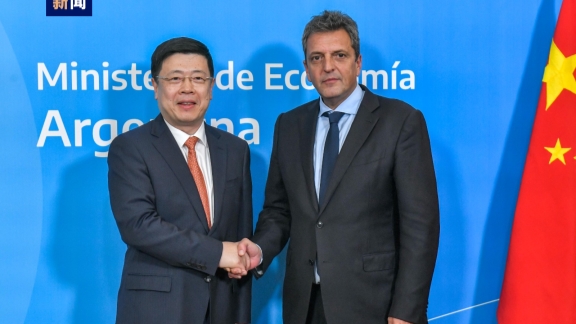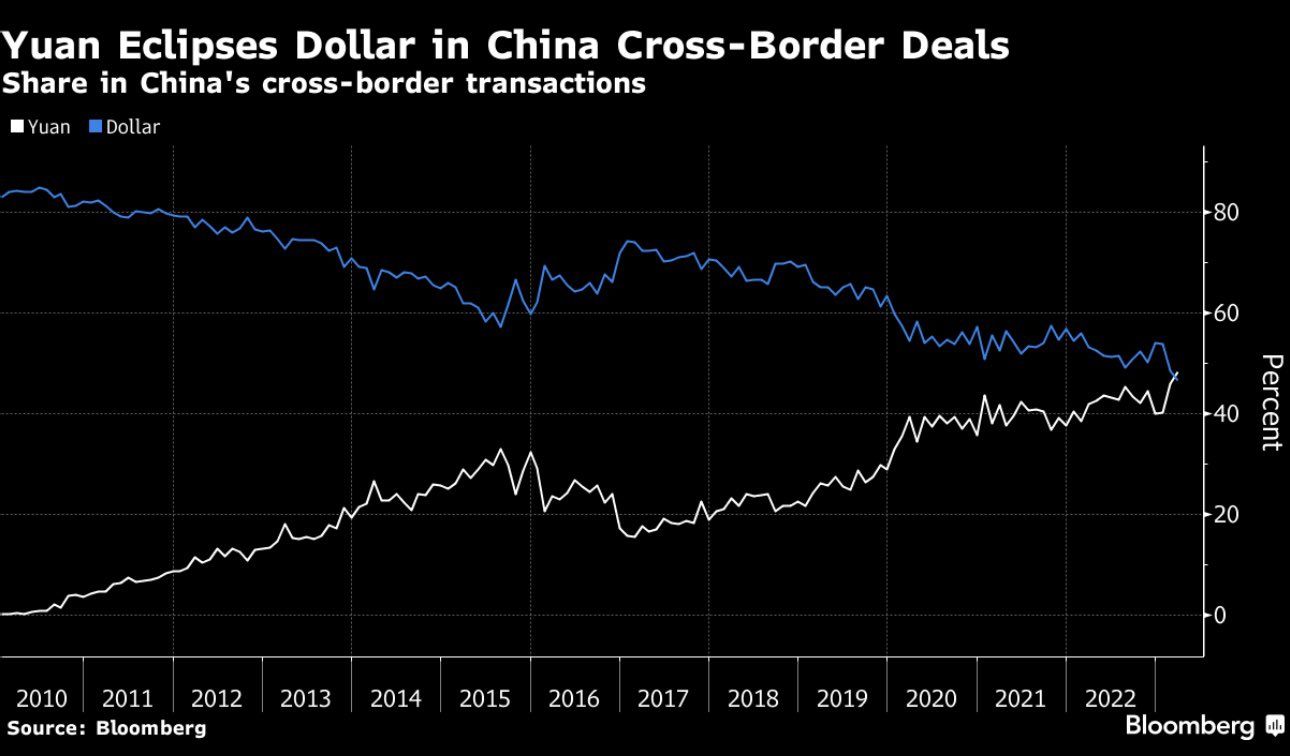beijingwalker
ELITE MEMBER

- Joined
- Nov 4, 2011
- Messages
- 65,191
- Reaction score
- -55
- Country
- Location
Argentina to pay for Chinese imports in yuan rather than US dollars
Wang Qingchu12:54 UTC+8, 2023-04-27
Argentina will pay for imports from China in yuan instead of US dollars for settlement, the country's Economy Minister Sergio Massa said at a press conference on April 26, noting that the move signifies stronger bilateral trade ties, China Central Television reported on Thursday.
After reaching the agreement with various companies, Argentina will use the yuan for imports from China worth about US$1.04 billion this month, accelerating imports from China in the next few months as the move is expected to increase efficiency by reducing authorization time.
Starting from May, Argentina is expected to use the yuan for imports from China worth US$790 million to US$1 billion.
Using yuan for settlement not only helps to strengthen international reserves but also facilitates bilateral trade and brings greater flexibility, Massa said.
Chinese Ambassador to Argentina Zou Xiaoli said that strengthening economic and trade cooperation between China and Argentina is an important part of the comprehensive strategic partnership between the two countries and acknowledged the exchange as having "great potential" for both.
China supports Argentina's efforts to maintain economic and financial stability, as reflected in the joint statement issued during President Alberto Fernández's visit to China last year, Zhou added.
At the beginning of this year, the Central Bank of Argentina stated that Argentina and China had officially expanded their currency swap agreement, strengthening Argentina's existing 130-billion-yuan (US$19.5 billion) foreign exchange reserve and activating a 35-billion-yuan disposable amount.

Argentina to pay for Chinese imports in yuan rather than US dollars
After reaching the agreement with various companies, Argentina will use the yuan for imports from Ch
 www.shine.cn
www.shine.cn




